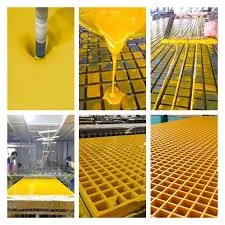
-
 Afrikaans
Afrikaans -
 Albanian
Albanian -
 Amharic
Amharic -
 Arabic
Arabic -
 Armenian
Armenian -
 Azerbaijani
Azerbaijani -
 Basque
Basque -
 Belarusian
Belarusian -
 Bengali
Bengali -
 Bosnian
Bosnian -
 Bulgarian
Bulgarian -
 Catalan
Catalan -
 Cebuano
Cebuano -
 China
China -
 China (Taiwan)
China (Taiwan) -
 Corsican
Corsican -
 Croatian
Croatian -
 Czech
Czech -
 Danish
Danish -
 Dutch
Dutch -
 English
English -
 Esperanto
Esperanto -
 Estonian
Estonian -
 Finnish
Finnish -
 French
French -
 Frisian
Frisian -
 Galician
Galician -
 Georgian
Georgian -
 German
German -
 Greek
Greek -
 Gujarati
Gujarati -
 Haitian Creole
Haitian Creole -
 hausa
hausa -
 hawaiian
hawaiian -
 Hebrew
Hebrew -
 Hindi
Hindi -
 Miao
Miao -
 Hungarian
Hungarian -
 Icelandic
Icelandic -
 igbo
igbo -
 Indonesian
Indonesian -
 irish
irish -
 Italian
Italian -
 Japanese
Japanese -
 Javanese
Javanese -
 Kannada
Kannada -
 kazakh
kazakh -
 Khmer
Khmer -
 Rwandese
Rwandese -
 Korean
Korean -
 Kurdish
Kurdish -
 Kyrgyz
Kyrgyz -
 Lao
Lao -
 Latin
Latin -
 Latvian
Latvian -
 Lithuanian
Lithuanian -
 Luxembourgish
Luxembourgish -
 Macedonian
Macedonian -
 Malgashi
Malgashi -
 Malay
Malay -
 Malayalam
Malayalam -
 Maltese
Maltese -
 Maori
Maori -
 Marathi
Marathi -
 Mongolian
Mongolian -
 Myanmar
Myanmar -
 Nepali
Nepali -
 Norwegian
Norwegian -
 Norwegian
Norwegian -
 Occitan
Occitan -
 Pashto
Pashto -
 Persian
Persian -
 Polish
Polish -
 Portuguese
Portuguese -
 Punjabi
Punjabi -
 Romanian
Romanian -
 Russian
Russian -
 Samoan
Samoan -
 Scottish Gaelic
Scottish Gaelic -
 Serbian
Serbian -
 Sesotho
Sesotho -
 Shona
Shona -
 Sindhi
Sindhi -
 Sinhala
Sinhala -
 Slovak
Slovak -
 Slovenian
Slovenian -
 Somali
Somali -
 Spanish
Spanish -
 Sundanese
Sundanese -
 Swahili
Swahili -
 Swedish
Swedish -
 Tagalog
Tagalog -
 Tajik
Tajik -
 Tamil
Tamil -
 Tatar
Tatar -
 Telugu
Telugu -
 Thai
Thai -
 Turkish
Turkish -
 Turkmen
Turkmen -
 Ukrainian
Ukrainian -
 Urdu
Urdu -
 Uighur
Uighur -
 Uzbek
Uzbek -
 Vietnamese
Vietnamese -
 Welsh
Welsh -
 Bantu
Bantu -
 Yiddish
Yiddish -
 Yoruba
Yoruba -
 Zulu
Zulu
frp insulation tank
Understanding FRP Insulation Tanks Benefits and Applications
Fiber Reinforced Polymer (FRP) insulation tanks are increasingly recognized for their durability, efficiency, and versatility in a wide range of industries. Constructed from a combination of a polymer matrix reinforced with fibers, typically glass or carbon, these tanks offer a robust solution for the storage and management of various liquids and gases.
Understanding FRP Insulation Tanks Benefits and Applications
Another advantage of FRP insulation tanks is their lightweight nature. Compared to traditional materials, FRP is considerably lighter, which simplifies the transportation and installation process. This feature is particularly advantageous in sectors where accessibility is challenging, allowing for easier site handling and installation without compromising on the tank's performance or durability.
frp insulation tank

The insulation properties of FRP tanks are also noteworthy. These tanks can be designed to include thermal insulation, aiding in temperature regulation for stored materials. This capability is crucial for applications involving liquids that require a specific temperature range, such as in the food and beverage industry or when dealing with temperature-sensitive chemicals. By minimizing heat exchange with the environment, FRP insulated tanks help maintain product integrity and quality.
In terms of customization, FRP insulation tanks can be molded into various shapes and sizes to meet specific project requirements. This versatility allows industries to optimize storage solutions according to their space constraints and operational needs. Furthermore, the materials used in FRP tanks can be tailored to enhance specific chemical resistances or thermal properties, ensuring compatibility with a diverse array of substances.
Additionally, FRP insulation tanks are environmentally friendly. As manufacturers and industries increasingly prioritize sustainability, FRP materials can be produced with lower energy consumption compared to traditional metals. Moreover, the longevity and durability of FRP tanks contribute to reduced environmental impact by minimizing the frequency of replacement and disposal.
In conclusion, FRP insulation tanks represent a sophisticated solution for liquid and gas storage across various industries. Their resistance to corrosion, lightweight nature, effective insulation properties, and customization capability make them an attractive option for businesses aiming to optimize their storage systems while minimizing costs and environmental impact. As industries continue to evolve, FRP technology will likely play a pivotal role in enhancing efficiency and sustainability in storage solutions. Organizations looking for reliable and innovative tank solutions should consider FRP insulation tanks as a prime option for their operational needs.









